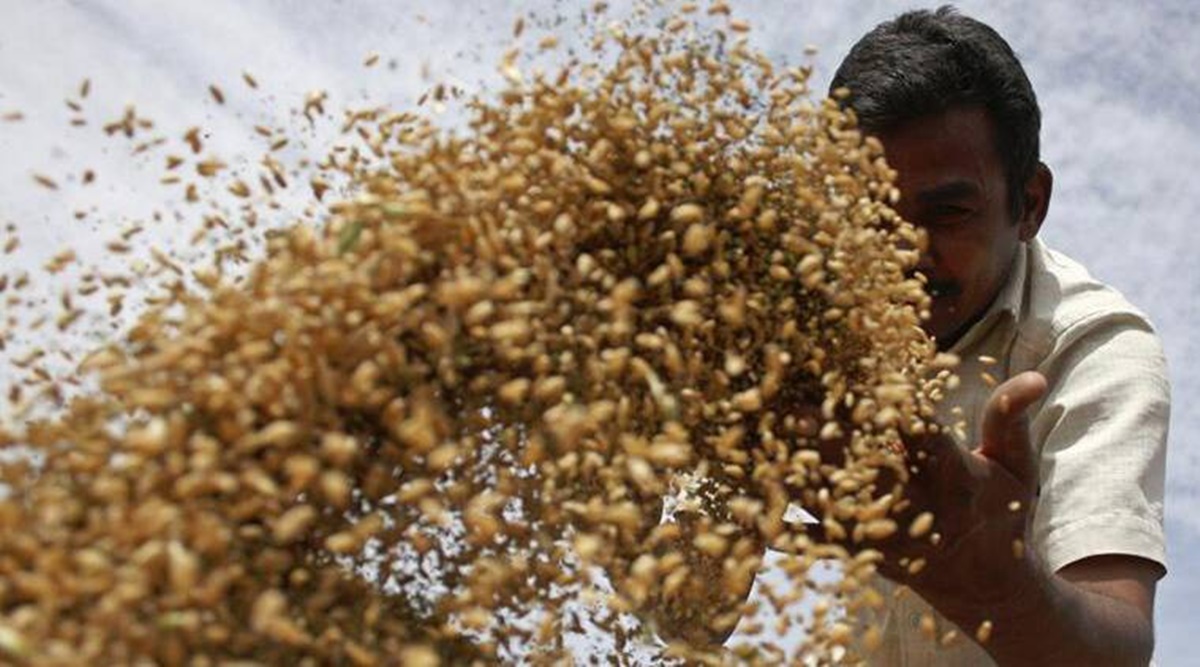 The CIP is the price at which the government makes available foodgrains for beneficiaries of the National Food Security Act, 2013 and other welfare schemes to the states from the central pool. (Representational)
The CIP is the price at which the government makes available foodgrains for beneficiaries of the National Food Security Act, 2013 and other welfare schemes to the states from the central pool. (Representational) Observing that the food subsidy is becoming “unmanageably large”, the Economic Survey 2020-21 has recommended the revision of Central Issue Prices (CIP) of foodgrains released from the central pool, which have been unchanged for the last several years.
“The food subsidy bill is becoming unmanageably large. While it is difficult to reduce the economic cost of food management in view of rising commitment towards food security, there is a need to consider the revision of CIP to reduce the bulging food subsidy bill,” said the survey.
The CIP is the price at which the government makes available foodgrains for beneficiaries of the National Food Security Act, 2013 and other welfare schemes to the states from the central pool.
For instance, the CIPs of rice, wheat and coarse grains are Rs 300 per quintal, Rs 200 per quintal and Rs 100 per quintal respectively under NFSA, Mid-Day Meal Scheme, and Integrated Child Development Services (ICDS). It has been unchanged since 2013, when the NFSA came into effect.
The CIP is higher for other welfare schemes (rice Rs 565 per quintal, wheat Rs 415 per quintal and coarse grains Rs 300 per quintal). It is even higher for Tide Over allocations — rice Rs 830/quintal, wheat Rs 610/quintal and coarse grains Rs 450/quintal). For both these categories, there has been no change since April 2016.
“The CIP of wheat and rice for NFSA beneficiaries has not been revised since the introduction of the Act in 2013 from Rs 200 per quintal in case of wheat and Rs 300 per quintal in case of rice. On the other hand, the economic cost of wheat for FCI (Food Corporation of India) operations has increased from Rs 1908.32 per quintal in 2013-14 to Rs 2683.84 per quintal in 2020-21,” said the Survey.
“Similarly, the economic cost of rice has increased from Rs 2615.51 per quintal in 2013-14 to Rs 3723.76 per quintal in 2020-21,” it said.
“Further, the NFSA provides a wider coverage than the erstwhile TPDS. These all taken together has resulted in the rise in food subsidy,” it added.
The government had budget food subsidy at Rs 1,15,570 crore for the current financial year against the revised estimate of Rs 1,08,688 crore last year.
The survey has suggested the revision of CIP at a time when the three farm laws, brought by the government, have been opposed by the farmers and the opposition parties.
The survey termed the three laws as “a remedy, not a malady”.
“The three agricultural reform legislations are designed and intended primarily for the benefit of small and marginal farmers which constitute around 85 per cent of the total number of farmers and are the biggest sufferer of the regressive APMC regulated market regime. The newly introduced farm laws herald a new era of market freedom which can go a long way in the improvement of farmer welfare in India,” the survey said.
The survey has also suggested setting up of “agricultural schools” in rural areas.